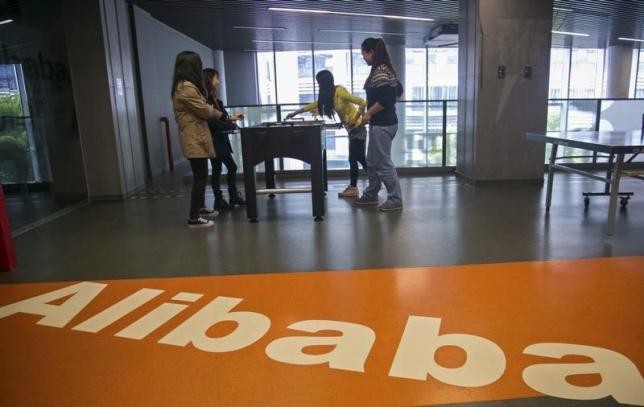China's e-commerce giant Alibaba is bent on competing with rivals Baidu and Tencent to lead in services, platforms and markets, with its latest acquisition, an article published in thestreet.com said.
The three Chinese giant firms have partnered with other companies to compete in various fields that include e-commerce, online video, payments, maps/location services, online travel, games, web browsers and online-to-offline (O2O) commerce.
The report said that Alibaba's move turn to mergers & acquisition (M&A) by acquiring Android app stores is reasonable since the company has no presence in the market.
According to the report, the e-commerce giant has acquired Android app store owner Wandoujia for $200 million. It is estimated that Wandoujia has 5.7 percent of the Chinese app distribution market, which is ranked fifth place overall and followed by Baidu with 27.4 percent and Tencent, 19.4, the research firm Analysys said.
Apple (AAPL), which controls iOS app distribution, was not included in the data. On the other hand, Alphabet's (GOOGL) Google Play, which does not operate in China, may be introduced in the country later this year.
With the acquisition, Alibaba is expected to use its user data to deliver personalized app recommendations to visitors of the app store, Wandoujia's founder said. The ecommerce giant may also be able to promote Wandoujia in all its apps and services, which include the Alipay mobile wallet app, the Taobao and Tmall e-commerce apps, and the UCWeb mobile browser while Wandoujia's store will do similarly with Alibaba's apps and services.
Over the last two years, Alibaba has made a series of acquisitions and investments with Wandoujia as the latest. Some of its most prominent deals include the purchase of Chinese online video provider Youku Tudou for $4.2 billion, its $680 million investment in Indian payments/e-commerce firm Paytm, and the acquisition of the South China Morning Post, a major Hong Kong-based newspaper, for $266 million.
As Alibaba now has an estimated $17.3 billion in cash (to go with $9 billion in debt) at the end of the first quarter, it is expected that its buying spree will continue.



























